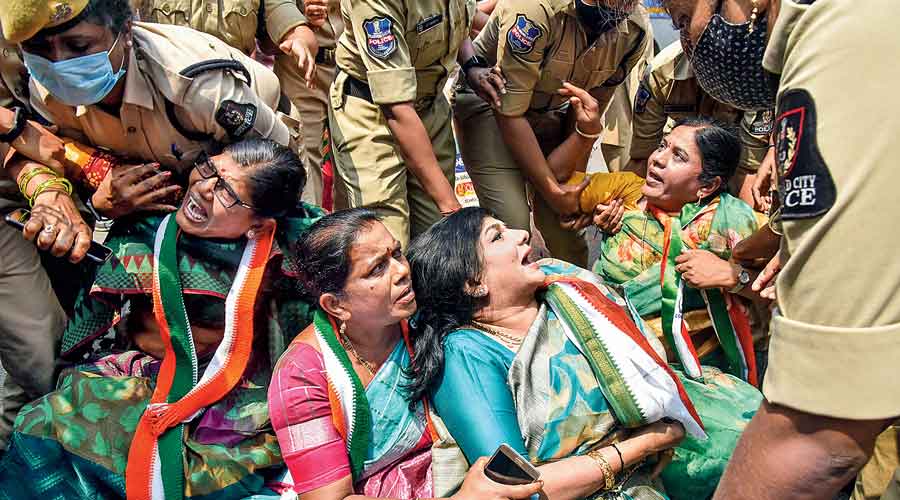The Opposition on Friday asked why fuel prices had started increasing after the elections after remaining stable for 137 days despite a rise in crude oil rates due to the crisis in Ukraine.
Continuing to protest over the issue without stalling House proceedings, the Opposition members also staged a symbolic walkout to press for a rollback to give relief to the common people.
“Sir, the prices of petrol and diesel were hiked for the third time in a week yesterday (Thursday). We do not know how many more hikes await the people of India,” Congress MP Gaurav Gogoi said, raising the issue during Zero Hour.
“We want this government to give a reply why for 137 days they managed to keep the prices stable and now after the elections are over, they are increasing the prices,” he added.
Gogoi raised the issue twice — during Zero Hour and while initiating the debate on the Finance Bill that was passed on Friday.
The Congress MP said the government’s excuse that fuel prices were rising because of the crisis in Ukraine did not cut ice. He said the Ukraine crisis started in December but prices were not increased for over two months after that.
“If for 137 days they could keep the prices stable, why can they not do it now when the country is reeling from inflation?” he said.
Participating in a debate over the Finance Bill, Gogoi said the country was witnessing inflation and unemployment and therefore the government needed to check the frustration among people by keeping the fuel prices stable.
He accused the government of resorting to jingoism to tell people that they should have faith in the supreme leader.
“There is record unemployment, but don’t worry, our supreme leader is there. Prices are rising, jingoism is the only antidote that this government is offering the poor,” Gogoi said.
Replying to the debate over the Finance Bill, finance minister Nirmala Sitharaman talked about the fuel price rise and blamed it on the war, saying supply chains were disrupted and all countries were bearing the impact.
Sitharaman said Prime Minister Jawaharlal Nehru had in 1951 linked inflation in India to the Korean war.
“If Pandit Nehru could say that Korean war can affect Indian inflation, I will have to say that today in a globally connected time, it (Ukraine war) will definitely affect prices,” Sitharaman said.











